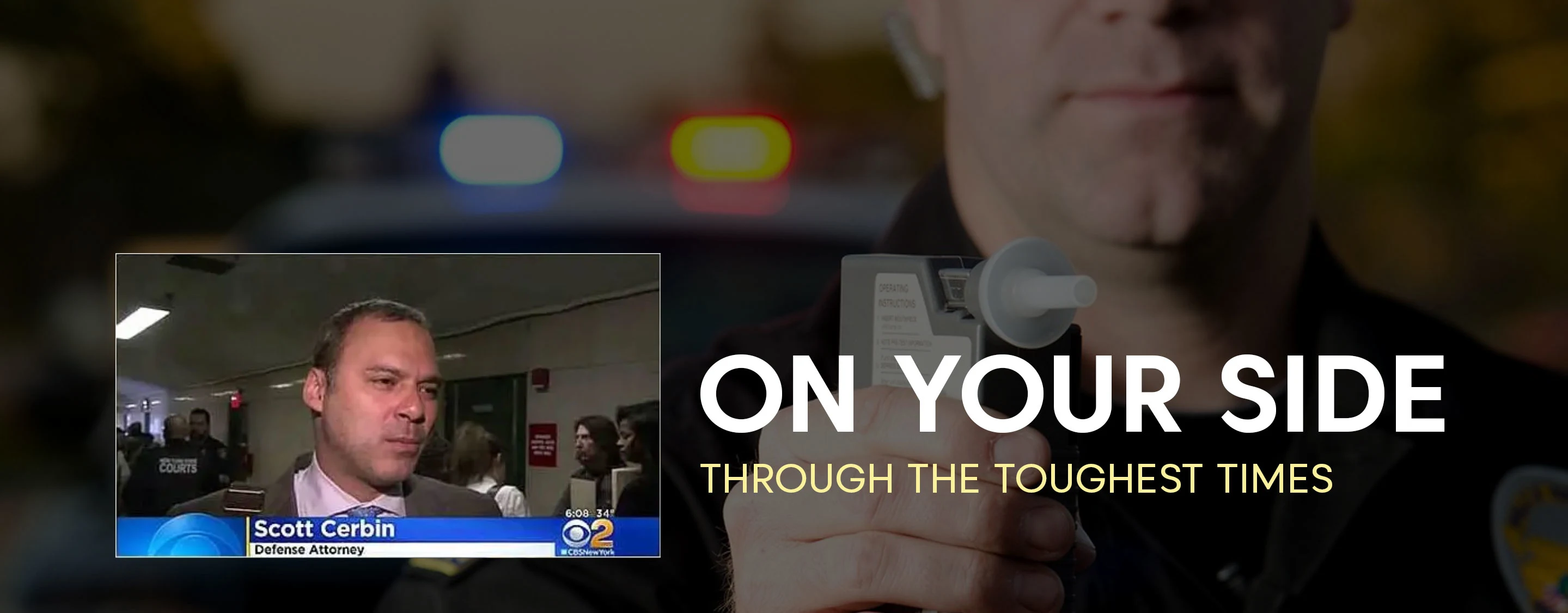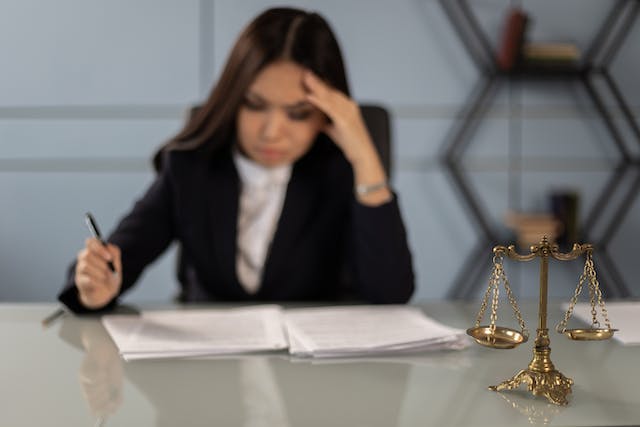Unsupervised probation is a form of probation that offers individuals the opportunity to serve their probation period without the regular monitoring of a probation officer. This type of probation differs from supervised probation, where individuals have more oversight and are required to regularly report to a probation officer. Typically, unsupervised probation is granted to low-risk offenders who have demonstrated good behavior and are not considered a threat to society. It provides individuals with more freedom and flexibility while still having to adhere to specific probation terms and conditions.
For example, consider a low-risk offender who has been convicted of a non-violent misdemeanor offense such as petty theft. This individual, if deemed suitable, may be granted unsupervised probation based on their low-risk profile and the non-violent nature of the offense. In this scenario, the court may determine that the individual can fulfill their probation requirements without the need for constant monitoring by a probation officer. This illustrates how unsupervised probation caters to individuals with a low-risk profile and provides them with the opportunity to serve their probation with a higher degree of independence.
Eligibility for unsupervised probation is influenced by factors such as the severity of the offense and the individual’s criminal history. It is essential for individuals facing unsupervised probation to consult with a criminal defense attorney to understand their rights and responsibilities, as well as to receive guidance on the legal aspects of the probation process.
How Unsupervised Probation Works
When individuals are granted unsupervised probation, they are not required to report to a probation officer but instead report directly to the court. This means that they do not have regular meetings with a probation officer, which can be seen as a benefit compared to supervised probation. The terms and conditions of unsupervised probation typically include various requirements such as not committing new crimes, attending progress reports at the court, paying fines, and possibly performing community service. For example, a person on unsupervised probation for a misdemeanor offense might be required to pay restitution to the victim and attend court-mandated counseling sessions.
Moreover, the process of unsupervised probation can vary by jurisdiction, with specific rules and regulations set by the court. For instance, in some jurisdictions, individuals on unsupervised probation may be required to periodically check in with the court to provide updates on their progress and compliance with the probation terms. This illustrates the importance of understanding the specific requirements and expectations associated with unsupervised probation, as they can differ based on the jurisdiction and the nature of the offense.
One of the key benefits of unsupervised probation is the potential cost savings for the individual. Unlike supervised probation, where individuals may have to pay supervision fees, unsupervised probation eliminates this financial burden. However, it’s crucial to emphasize that individuals on unsupervised probation must still adhere to the specified probation terms to avoid potential consequences. If they fail to comply with the conditions of unsupervised probation, they could face stricter probation terms, be placed on supervised probation, or even be subject to jail time as a consequence of violating their probation terms.
Differences Between Unsupervised and Supervised Probation
Unsupervised probation differs from supervised probation in several key ways, primarily in the level of monitoring and oversight. Individuals on unsupervised probation are required to report directly to the court, rather than having regular interactions with a probation officer. This means that they have more independence in managing their probation terms and conditions. On the other hand, those on supervised probation are subject to more stringent monitoring by a probation officer, requiring regular check-ins and compliance with specific terms set by the court.
For example, an individual convicted of a low-level misdemeanor offense, such as petty theft, might be considered a suitable candidate for unsupervised probation. Given the non-violent nature of the offense and the absence of prior criminal history, the court may determine that this individual can responsibly fulfill their probation requirements without constant supervision. Conversely, a person convicted of a more serious felony, such as armed robbery, may be placed on supervised probation due to the higher risk they pose to the community, necessitating closer oversight and support to ensure compliance with the terms of their probation.
Additionally, the potential benefits of unsupervised probation, such as less frequent monitoring and more flexibility in fulfilling the conditions, make it an attractive alternative for individuals who have demonstrated good behavior and pose a low risk to society. Conversely, supervised probation is usually reserved for individuals with a higher risk level, as it allows for more intensive monitoring and support to ensure compliance with the terms of their probation.
Moreover, the differences between unsupervised and supervised probation can also impact the level of support and resources available to individuals during their probationary period. For instance, individuals on unsupervised probation may have more autonomy in fulfilling their probation requirements, whereas those on supervised probation may receive more structured guidance and assistance from their probation officer. This highlights the importance of understanding the distinctions between the two types of probation and their implications for individuals serving their probationary period.
Eligibility and Considerations
Eligibility for unsupervised probation is determined based on several factors, including the severity of the offense and the individual’s criminal history. For example, low-risk offenders who have committed non-violent, low-level felony or misdemeanor offenses, or first-time offenders, may be considered eligible for unsupervised probation. Additionally, courts may reserve unsupervised probation for individuals who have demonstrated good behavior and are not deemed a threat to society. This type of probation is often seen as a second chance for individuals to rehabilitate and reintegrate into society without the need for regular monitoring by a probation officer.
When facing unsupervised probation, it is essential for individuals to seek the guidance of a criminal defense attorney. An attorney can provide valuable assistance in navigating the legal complexities, contesting charges, and presenting a strong defense to increase the chances of receiving unsupervised probation. Additionally, legal counsel can help individuals understand the specific conditions and obligations associated with unsupervised probation, ensuring they are fully aware of their rights and responsibilities during the probationary period. By consulting with an attorney, individuals can gain a deeper understanding of the legal implications and potential consequences of unsupervised probation, empowering them to make informed decisions and take proactive steps to comply with the terms of their probation.
In addition to legal guidance, individuals should also consider the potential impact of unsupervised probation on their personal and professional lives. For instance, the flexibility offered by unsupervised probation may present opportunities for individuals to pursue educational or vocational goals, engage in community service, or seek employment without the constraints of regular probation officer meetings. Understanding the implications of unsupervised probation on various aspects of life can help individuals make informed decisions and effectively plan for the successful completion of their probationary period.
In summary, the severity of the offense and an individual’s criminal history play a significant role in determining eligibility for unsupervised probation. Seeking legal counsel from a criminal defense attorney is crucial for individuals facing unsupervised probation, as it can provide invaluable support in navigating the legal process and ensuring a comprehensive understanding of the rights, responsibilities, and potential outcomes associated with unsupervised probation.
Understanding Unsupervised Probation in California
In California, unsupervised probation allows individuals to serve their probation without regular monitoring by a probation officer. This means that individuals are not required to report to a probation officer and are responsible for self-reporting their adherence to the terms of their probation. For example, if someone is on unsupervised probation in California, they may be required to attend counseling sessions, pay fines, or complete community service, but they do not have to regularly meet with a probation officer for check-ins or monitoring.
The eligibility for unsupervised probation in California is typically reserved for low-risk offenders who have demonstrated good behavior and are not deemed a threat to society. This could include individuals who have committed low-level misdemeanor offenses or non-violent, low-level felony offenses, as well as first-time offenders who do not have a significant criminal history. It’s important to note that while unsupervised probation does not involve regular monitoring by a probation officer, individuals are still required to adhere to the terms and conditions of their probation. Failure to comply with the terms of unsupervised probation in California can result in more severe consequences, including potential jail time, so it’s crucial for individuals to take their probation obligations seriously and fulfill all the required conditions.
Furthermore, the specific regulations and guidelines governing unsupervised probation in California may vary based on the jurisdiction and the nature of the offense. For instance, individuals serving unsupervised probation in different counties within California may encounter variations in the reporting requirements, probation terms, and available support services. Understanding these variations can help individuals effectively navigate their probationary period and ensure compliance with the specified conditions.
Rights and Responsibilities of Individuals on Unsupervised Probation
Individuals on unsupervised probation have specific responsibilities and obligations while serving their probation. These may include adhering to curfews, refraining from contacting the victim, and fulfilling community service requirements. It is essential for individuals to understand and comply with these conditions to ensure successful completion of their probationary period.
Moreover, individuals on unsupervised probation have the right to seek legal advice and representation, especially when facing challenges or uncertainties about the terms of their probation. For instance, if an individual believes that the conditions of their unsupervised probation are unreasonable or unclear, consulting with a criminal defense attorney can provide valuable guidance and legal insights. This legal assistance can help individuals navigate the complexities of their probation, ensuring that they understand their rights and fulfill their responsibilities effectively.
In addition to understanding their rights and responsibilities, individuals on unsupervised probation should also be aware of the potential consequences of non-compliance. By recognizing the implications of violating the terms of their probation and the associated repercussions, individuals can make informed decisions and take proactive steps to ensure adherence to the specified conditions. This comprehensive understanding can empower individuals to actively participate in their probationary period and fulfill their obligations effectively.
Moreover, individuals should also be cognizant of the potential impact of unsupervised probation on their personal and professional lives. Understanding the balance between probation requirements and other responsibilities can help individuals effectively manage their obligations and make informed decisions about their daily activities. By recognizing the interplay between their rights and responsibilities, individuals can navigate their probationary period with a comprehensive understanding of the implications and potential outcomes.
Consequences of Violating Unsupervised Probation
Violating the terms of unsupervised probation can have serious repercussions for individuals, potentially resulting in stricter probation terms, conversion to supervised probation, or even incarceration. For example, if an individual on unsupervised probation fails to meet the conditions set by the court, such as maintaining a curfew, attending counseling, or paying fines, they may face more stringent probation requirements as a consequence. This could involve additional reporting to a probation officer or stricter monitoring of their activities to ensure compliance.
Furthermore, in cases of repeated or severe violations, the court may opt to convert unsupervised probation to supervised probation. This would mean that the individual would now be required to regularly report to a probation officer, who would closely monitor their activities and ensure adherence to the specified conditions. The transition from unsupervised to supervised probation can significantly impact the individual’s freedom and flexibility during the probation period. Additionally, repeated violations or serious non-compliance could lead to the revocation of unsupervised probation, resulting in potential incarceration as a consequence.
To illustrate, consider a scenario where an individual on unsupervised probation fails to comply with the requirement to attend court-mandated counseling sessions. As a consequence, the court may impose stricter probation terms, such as requiring the individual to report to a probation officer for regular check-ins and monitoring. This example demonstrates the potential outcomes of violating the terms of unsupervised probation and the subsequent impact on the individual’s probationary period.
It’s essential for individuals on unsupervised probation to fully understand the conditions set by the court and to strictly adhere to them to avoid these unfavorable outcomes. This includes fulfilling obligations such as attending required counseling sessions, maintaining a curfew, performing community service, and any other conditions specified by the court. By actively complying with the terms of unsupervised probation, individuals can mitigate the risk of facing stricter consequences and uphold their legal responsibilities.
Benefits and Drawbacks
Unsupervised probation offers several benefits that make it an attractive alternative to supervised probation. One of the key advantages is the flexibility it provides to individuals. Unlike supervised probation, unsupervised probation typically does not involve regular meetings with a probation officer, allowing individuals more freedom to manage their daily routines and responsibilities without the need for direct oversight. For example, a low-risk offender on unsupervised probation may be able to continue working, attending school, or caring for their family without the constraints of frequent check-ins with a probation officer.
Moreover, unsupervised probation often results in reduced supervision compared to its supervised counterpart. This means that individuals on unsupervised probation may have fewer restrictions on their activities and interactions, enabling them to maintain a relatively normal lifestyle while meeting the conditions of their probation. For instance, a person on unsupervised probation may have more freedom to travel or relocate for employment opportunities, which may not be feasible under the stricter terms of supervised probation.
However, it’s important to note that unsupervised probation also comes with significant responsibilities. Individuals are required to strictly adhere to the specified probation terms, which may include maintaining a curfew, attending counseling or treatment programs, paying fines, and performing community service. Failure to comply with these conditions can lead to severe consequences, including the reinstatement of the original criminal sentence or even jail time. Therefore, while unsupervised probation offers flexibility, it requires individuals to exercise diligence and commitment to avoid potential repercussions.
Consulting with a criminal defense attorney can be instrumental in navigating the benefits and drawbacks of unsupervised probation. An experienced attorney can provide legal guidance, evaluate the individual’s unique circumstances, and advocate for the most favorable outcome within the legal system. By understanding the implications of unsupervised probation and having the support of a knowledgeable attorney, individuals can make informed decisions and effectively navigate the complexities of their probationary period.
In addition to the benefits and drawbacks, individuals should also consider the potential impact of unsupervised probation on their personal and professional lives. Understanding the balance between probation requirements and other responsibilities can help individuals effectively manage their obligations and make informed decisions about their daily activities. By recognizing the interplay between the benefits and drawbacks of unsupervised probation, individuals can navigate their probationary period with a comprehensive understanding of the implications and potential outcomes.
Unsupervised Probation vs. Supervised Probation
Unsupervised probation differs from supervised probation in several key ways. For instance, individuals on unsupervised probation report directly to the court rather than to a probation officer, providing them with a greater sense of independence while fulfilling their probation requirements. This means that they are not subject to regular meetings and check-ins with a probation officer, unlike those on supervised probation. As a result, individuals on unsupervised probation have more flexibility in their day-to-day activities, as they are not constantly required to report to a probation officer.
On the other hand, supervised probation involves regular meetings with a probation officer who monitors compliance with the terms and conditions of probation. This level of oversight is typically reserved for individuals who may pose a higher risk to society or have a more serious criminal history. It also entails more stringent monitoring and possibly stricter terms of probation. Understanding these differences is essential for individuals facing probation, as it can impact the level of freedom and responsibility they have during their probationary period. Therefore, individuals should carefully consider the implications of each type of probation and seek legal advice to determine the most suitable option based on their specific circumstances and the nature of their offense.
Moreover, understanding the distinctions between unsupervised and supervised probation can also help individuals effectively navigate their probationary period. By recognizing the differences in the level of monitoring, oversight, and support provided under each type of probation, individuals can make informed decisions and take proactive steps to fulfill their probation requirements. This comprehensive understanding can empower individuals to actively participate in their probationary period and make choices that align with their individual needs and circumstances.
In summary, individuals should consider the potential impact of unsupervised probation versus supervised probation on various aspects of their lives, including personal responsibilities, employment, and community involvement. This holistic understanding can guide individuals in making informed decisions about their probationary period and ensuring compliance with the specified conditions.
FREE CONSULTATIONS
If you or someone you love faces criminal charges in Brooklyn, contact the experienced criminal defense attorney Scott Cerbin for a free initial consultation. Call (718) 596-1829 or visit us online to schedule your appointment and get personalized guidance from a Brooklyn lawyer today.





